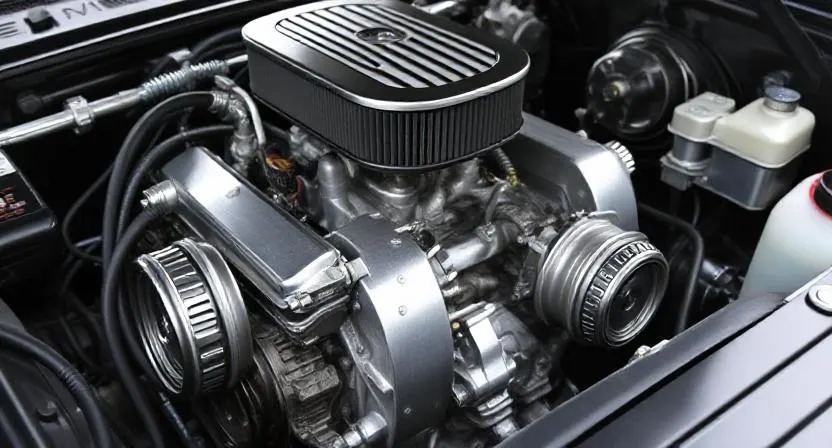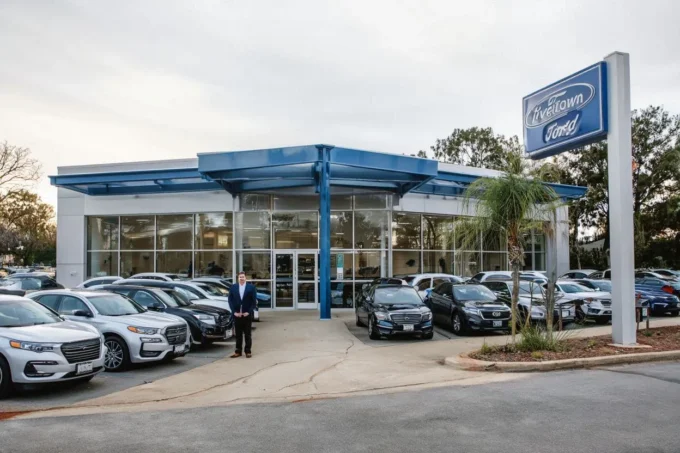The GM L87 engine lawsuit has grown in importance within the automotive industry. Many owners of General Motors vehicles have expressed grave doubts over the dependability of the 6.2-liter V8 L87 engine found in a number of well-known models. According to the GM L87 engine lawsuit, these engines have undiscovered flaws that could cause unexpected failure, expensive repairs, and even possible road safety risks. Everything you need to know about this case and the actions owners can take will be covered in this post.
Background of the GM L87 Engine Lawsuit
Following several reports of early engine failure in cars with the L87 6.2L V8 engine, the gm l87 engine lawsuit was started. According to the plaintiffs, internal engine parts like crankshafts, bearings, and connecting rods are at fault. Drivers are said to become stranded when the engine suddenly seizes due to these flaws. Owners of General Motors vehicles impacted by this problem contend that the business neglected to disclose these production defects, which prompted the GM L87 engine lawsuit to be filed in several U.S. states.
Vehicles Affected by the GM L 87 Engine Lawsuit
Several GM cars produced from 2019 to 2024 are covered by the GM L 87 engine lawsuit. The suburban, Cadillac Escalade, GMC Yukon, Chevrolet Tahoe, GMC Sierra 1500, and Chevrolet Silverado 1500 are reportedly among the affected vehicles. Powering all of these vehicles is the 6.2-liter L87 V8 engine, which was marketed as a potent and effective power source. Numerous owners in the GM L87 engine case, however, argue that the engine does not meet the reliability standards expected of a high-end pickup or SUV.
Key Allegations in the GM L87 Engine Lawsuit
The GM L87 engine case brings to light a number of significant problems, according to the court documents. One of the main accusations is that GM offered cars with engines that were faulty and had excessive wear on internal parts. Additionally, the lawsuit claims that GM’s recall and repair attempts fall short of addressing the fundamental issue. Some owners assert that the same problems persist even after several fixes. Furthermore, according to the GM L 87 engine lawsuit, these flaws lower fuel economy and result in high maintenance costs for car owners.
Legal Proceedings and Developments
A multi-state class-action lawsuit has developed from the GM L87 engine litigation. Plaintiffs suing General Motors for damages are being represented by law firms including Hagens Berman and others. To expedite the judicial procedure, a number of lawsuits have been consolidated in federal court. GM has voluntarily recalled certain L87 engines, although as of mid-2025, the company still denies any culpability. The GM L87 engine lawsuit’s plaintiffs contend that the company’s reaction is inadequate and that impacted vehicles require complete replacements rather than simple fixes.
Impact on GM Owners
Customers of General Motors are quite concerned about the GM L87 engine lawsuit. Many owners depend on their trucks and SUVs for work-related or daily transportation. Unexpected engine failure can result in significant financial losses in addition to safety concerns. Because prospective purchasers are leery of known engine issues, vehicle resale values may also decline. The goal of the GM L87 engine litigation is for a court decision or settlement to ultimately provide impacted consumers with financial relief and justice.
GM’s Response to the Lawsuit
In response to the lawsuit about the GM L87 engine, General Motors has stated that quality and safety are top priorities for the firm in all of its automobiles. According to GM, any engine problems that have been documented are individual occurrences rather than common flaws. Attorneys and consumer activists counter that the volume of complaints shows otherwise. Although GM has provided engine checks and published a few technical service bulletins, detractors claim that these actions just provide band-aid solutions and do not adequately address the issues brought up in the GM L87 engine lawsuit.
What Affected Owners Can Do
There are a few things you may do if you think your car is included in the GM L87 engine lawsuit. To find out if your car or truck is on GM’s recall list, first look up your Vehicle Identification Number (VIN). Maintain thorough maintenance logs and repair invoices in case they are required for court cases. For guidance, you can also speak with a law firm that focuses on class-action lawsuits involving automobiles. You may be able to get reimbursement for future engine replacements or repair expenses if you join the GM L 87 engine lawsuit.
Possible Outcomes of the GM L87 Engine Lawsuit
Depending on how the courts decide, the GM L87 engine lawsuit might have a number of different consequences. GM may decide to reach a settlement with the plaintiffs and provide impacted owners with compensation or extended warranties. Mandatory recalls and free engine replacements for all cars with the L87 powertrain are potential outcomes as well. Notwithstanding the verdict, the GM L87 engine case serves as a reminder that customers have legal recourse in cases when manufacturers fall short of their obligations on product safety and dependability.
Conclusion
The GM L87 engine lawsuit is a turning point for General Motors and its clients, emphasizing the value of integrity and responsibility in the auto sector. It illustrates how a single design error may affect thousands of car owners and harm a brand’s reputation. The ongoing GM L 87 engine lawsuit investigations make it abundantly evident that consumers are entitled to greater product testing and transparency. Automakers may be compelled by the case to enhance quality control and accept accountability for concealed flaws. According to numerous legal experts, the result might result in significant recalls or settlements. In addition to monetary remuneration, the GM L87 engine lawsuit stands as a lesson about fairness and corporate ethics. Ultimately, this case could change how future manufacturers handle product safety and customer trust across the entire car industry.

















Leave a comment